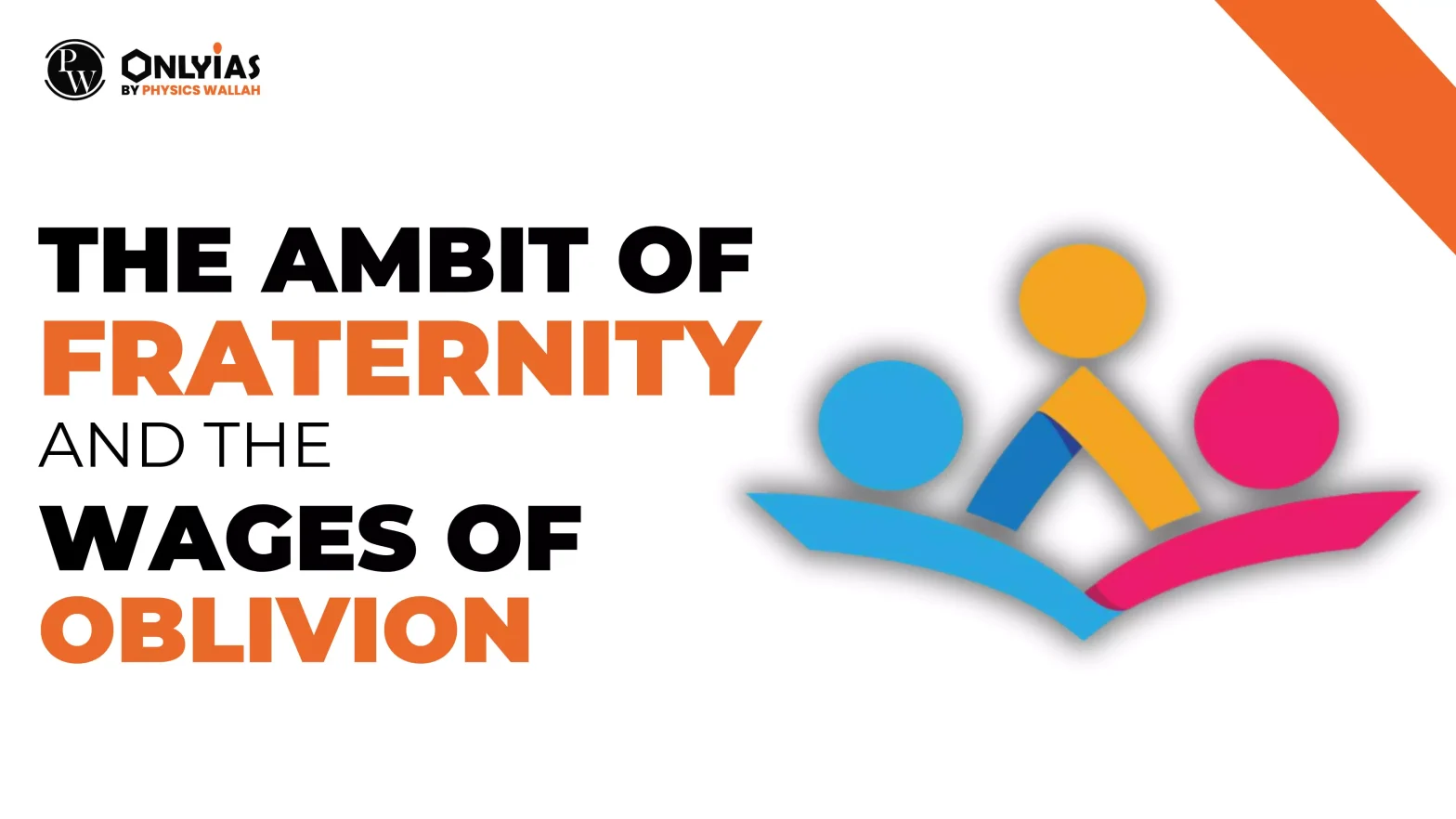Fraternity in the Constitution
- BR. Ambedkar, in his address to the Constituent Assembly in 1949, remarked: “These principles of liberty, equality, and fraternity are not to be treated as separate items in a trinity. They form a union of trinity in the sense that to divorce one from the other is to defeat the very purpose of democracy.”
- The Indian Constitution, in its Preamble, enshrines three key values: Liberty, Equality, and Fraternity. Liberty refers to the freedom of individuals to act, speak, or think without undue restraint or coercion from the state or other entities. Equality implies that all individuals are entitled to the same rights and opportunities, free from discrimination based on race, religion, gender, or socio-economic status. Fraternity represents the sense of brotherhood and solidarity among all citizens, emphasising mutual respect and cooperation.
- The concept of fraternity can be expressed in the principle: “Do not do to others what you would not want them to do to you; do constantly to others the good which you would wish to receive from them.” This principle underscores the importance of mutual respect and positive interaction among individuals.
- Fraternity is sometimes seen as an emotional ideal rather than a clearly defined principle. It reflects a sense of kinship and emotional bond among people, promoting feelings of love and mutual respect.
Constitutional Meaning of Fraternity
In the Indian context, fraternity is defined as a critical component of citizenship that ensures the dignity of the individual and the unity and integrity of the nation. It goes beyond mere emotion to encompass a legal and moral obligation for individuals to foster harmony and brotherhood among all citizens.
Enroll now for UPSC Online Classes
Fraternity, Inequality, and Social Justice
- Historically, Indian society has grappled with issues of inequality and untouchability. While political equality has been established through legal frameworks, social equality has remained an ongoing challenge. B.R. Ambedkar remarked on this issue, noting that the presence of political equality without corresponding social equality leads to a life of contradictions.
- The concept of fraternity in India seeks to address these issues by promoting social integration and combating entrenched social divisions. The Indian Constitution envisions fraternity as a means to bridge the gap between political and social equality. While legal measures may guarantee political rights, fraternity emphasises the need for a deeper societal change to achieve true equality and unity.
Fundamental Duties
- Article 51A (e) of the Indian Constitution: The Forty-Second Amendment (1976) introduced Fundamental Duties, which include the responsibility of every citizen to “promote harmony and the spirit of common brotherhood among all the people of India, transcending religious, linguistic, and regional or sectional diversities.” This duty aligns with the concept of fraternity and reinforces the importance of individual responsibility in fostering national unity and integrity.
Effect of Inequality on Fraternity
- Inequality in Indian society manifests in various forms. It is economic on one plane and, on others, it is regional, caste-based, and religious. Some of these inequalities are explicit, while others are understated or assumed.
- Sociologists have identified nine categories of people who face social, political, and economic exclusion, including Dalits, Adivasis, women, and religious minorities.
- After gaining independence, many Western scholars predicted that India’s immense diversity would lead to its fragmentation. However, India has defied these predictions and emerged as a remarkable example of unity amidst diversity.
- Contrary to these forecasts, the country has not only managed to sustain its democratic framework but also to thrive as a vibrant, pluralistic society. India’s ability to integrate its varied cultural, linguistic, and religious communities into a cohesive national identity has demonstrated resilience and strength, serving as a model for other nations grappling with similar challenges.
In a speech on December 22, 1952, in the Constituent Assembly, Ambedkar outlined the “Conditions Precedent for the Successful Working of Democracy,” which include:
- Absence of glaring inequalities
- Presence of an opposition
- Equality before the law and administration
- Observance of constitutional morality
- Avoidance of the tyranny of the majority over the minority
- A functioning moral order in society
- Public conscience
Check Out UPSC NCERT Textbooks From PW Store
Conclusion
The principles outlined by Ambedkar remain relevant today. Fraternity is crucial for maintaining social cohesion and ensuring that the values of justice, liberty, and equality are upheld. It is a fundamental duty of every citizen to foster a spirit of common brotherhood, bridging divides and promoting unity in diversity. The enduring significance of fraternity lies in its ability to bind the nation together and ensure the dignity and respect of all individuals, thus reinforcing the democratic fabric of India.
![]() 22 Aug 2024
22 Aug 2024
